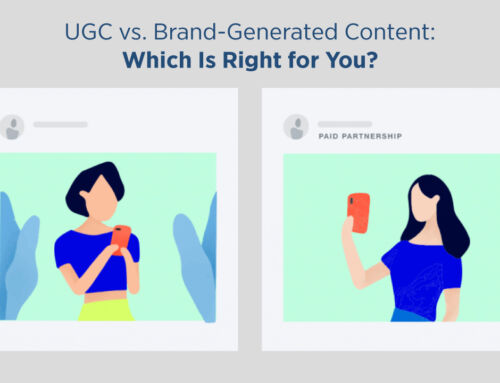Last updated on September 21, 2021
Canadian Consumer Perspectives on COVID-19 Inoculations as Kids Go Back to School
This month, Canadians are facing off against a perfect storm of pandemic-oriented factors, including school-aged cohorts returning to classrooms; vaccination passports being picked up by provincial governments; anti-vaxxers protesting in cities from coast to coast; and the fourth wave of the pandemic picking up speed.
In the face of the challenges that the pandemic has brought about for Canadians over the past year-and-a-half, and in light of the potential opportunities that are to come (including the impending introduction of a vaccine that’s suitable for children 11 years of age and under), we wanted to get a better understanding of Canadian perspectives on the COVID-9 inoculation front. Specifically:
How compliant are Canadians with vaccination mandates? How safe and effective are vaccination options currently available to Canadian populations? How do they feel about the impending launch of provincial vaccine passports? What do they have planned for the younger people in their lives in the coming months?
Here’s what we learned from Caddle Daily Active Survey panel of Canadian consumers:


The vast majority of Canadians across all provinces and age groups believe that vaccines are safe and effective, and as a result, have received at least one shot to defend against the COVID-19 virus. Specifically:
- Three-quarters of consumers “strongly agree”/”agree” that vaccines are safe.
- By comparison, <8% “disagree”/”strongly disagree.”
- Similarly, 74% think that COVID-19 vaccines are “extremely”/“moderately” effective, compared to just over 10% who believe they are “slightly”/“not at all” effective.
- 83% of consumers have received one vaccination, while 75% indicate that they’re fully vaccinated.
- In contrast, a minimal proportion of those who are not vaccinated against COVID either plan to get vaccinated “as soon as possible” or “not at all” (7%, each).

Personal and medical factors rank at the top of the list of reasons that some Canadian consumers have not been fully vaccinated (7% and 6% respectively), while another 3% indicate that they are partially vaccinated and awaiting their second dose.

Two-thirds of Canadian consumers agree that vaccine passports can help in the spread of the pandemic.
However, the implementation of the passport does not seem to influence whether non-vaccinated people will get inoculated or not in the future. Specifically:
‘Strongly agree/ agree’:
66% of consumers “strongly agree”/”agree” that the implementation of vaccine passports is necessary to stop the spread of COVID-19—especially consumers from the Maritime provinces (+11.5 points), Baby Boomers (+10 points), the Greatest Generation (+5 points), and Manitoba (+4 points).
‘Disagree/strongly disagree’:
In contrast, 16% of the General Population “disagree”/”strongly disagree,” including Gen Zers (+7 points), Millennials (+3.5 points), and Albertans (+3 points).
‘Neutral’:
A little over a third (35%) of consumers are “neutral” on the subject of restrictions associated with the proposed vaccine passport. In contrast, a further 25% of the General Population believe that the restrictions are too numerous, including Quebeckers and Manitobans (both +13 points), Albertans (+12 points), Saskatchewanians (+11 points), Ontarians (+10 points), British Columbians (+8 points) and Maritimers (+4 points). Among the consumers who have not yet been vaccinated for COVID-19, a near-equal percentage are motivated by the passport to receive their inoculation as not (11% vs. 13%, respectively).
Consumers with children under the age of 13 in their households are largely united in pursuing vaccination for children once a vaccine has been approved for use on children. Specifically:
Among the quarter of the people surveyed with children under the age of 13, >83% plan to get their children vaccinated. As an indicator of eagerness: Nearly one in two people plan to get their children vaccinated within the first three months of the child-appropriate vaccine being made available [especially Saskatchewanians (+6 points), Manitobans (+11 points), Baby Boomers (+12 points), and Prince Edward Islanders (+30 points).] Meanwhile, about 25% of consumers do not plan to have their children vaccinated (especially Quebeckers and Gen Zers, who over-index on this measure).
Main Takeaways
In sum, our research indicates that the population is overwhelmingly in alignment with the federal and provincial governments’ initiatives to use inoculation and vaccine passport mandates to fight the spread of the COVID-19 pandemic.
No.1 |
The majority of Canadians believe that the vaccines are both safe and effective—so much so that more than three-quarters of adults with children under 13 plan to have them inoculated when an age-appropriate vaccine becomes available.
No.2 |
The verdict is still out on the implementation of vaccine passports: While two-thirds of respondents believe in their efficacy in stopping the spread of COVID-19, significant pockets of consumers across the country believe that restrictions associated with the passport will be too limiting.
No.3 |
While we’ll expect to see more consumers rolling up their sleeves to get their vaccinations completed, we also believe that many Canadians will continue to question the passport roll-out—and in particular, the rules and regulations around the vaccine passport mandate itself—in the months ahead.
*Disclaimer: all data presented is owned by Caddle and has a Margin of Error of 1% or lower.
Get better business insights, faster, with Caddle.
Want more Caddle Insights? Sign up to our email list!





Leave A Comment